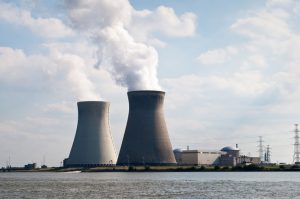Why the World Needs Nuclear

After the shock of Fukushima, nuclear power has been looked at with anxiety and apprehensiveness in the media. In reality, nuclear power is growing at a rapid rate. Done well, nuclear power represents an opportunity to cleanly and efficiently power the needs of developing and developed cities around the world.
According to Dev Randhawa, CEO of Fission Uranium, the future power grid looks like a hybrid. “Nuclear provides about 20% of American energy mix, and a lot of countries see that as the best combination,” he says, suggesting that the world will need to intensify its power output to meet growing demand.
This is especially true in developing nations, who will account for as much as 71% of the growth in energy demand between 2012 and 2040 (according to the US Energy Information Administration).
“As countries develop and living standards improve, energy demand grows rapidly.”
Economic growth is the strongest driving factor in energy consumption. As nations develop, activity increases the power grid becomes taxed. As an example, imagine the strain put on the grid around 5 PM local time when most people return home from work and turn on their televisions. That surge is something the power grid may not be able to handle for much longer.
Longer term solutions, like nuclear, are arguably necessary but not the only solution. In fact, some see a world where nuclear is part of a hybrid strategy. In the United States, nuclear power accounts for roughly 20% of the power grid, and other forms of energy are helping to bridge the gap. Combined, the United States, and other countries, may utilize several forms of clean energy, nuclear and coal or oil based power to fill in the gaps. What is clear is that an over reliance on any one of these is a challenge not to be overlooked.
Nuclear is part of a broader future strategy. While mishandling this important source of power can be catastrophic, there is great demand for the power of uranium.
